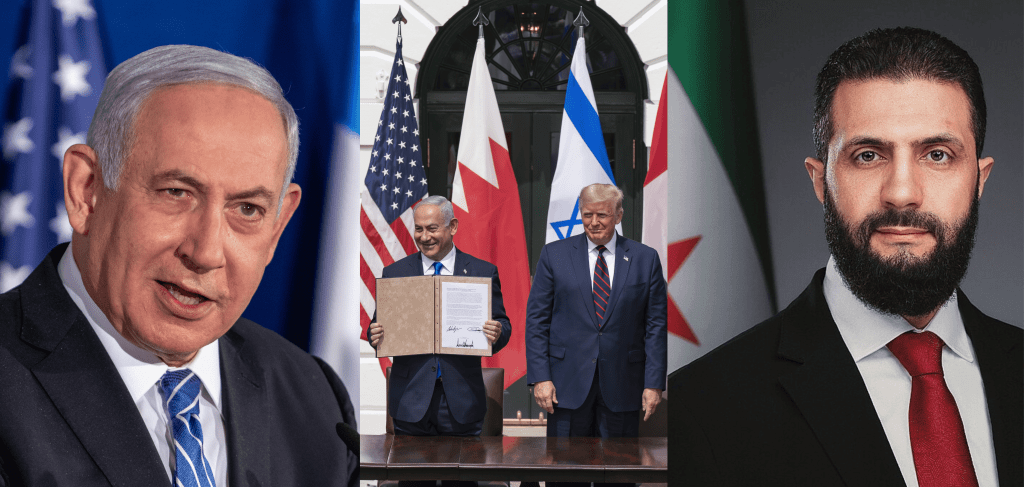Syria’s president rejects Israel ties over Golan Heights

The President of Syria, Ahmed Al-Sharaa, has dismissed the possibility of joining the Abraham Accords, the 2020 agreements that normalised relations between Israel and several Arab states, according to The New Arab via Al-Majalla on August 27th. In an interview with the Saudi magazine Al-Majalla on August 25th, he explained that Syria’s circumstances differ from those of other Arab states, noting that Israel continues to occupy the Golan Heights, which was seized by Israel in 1967.

Sharaa stated that the primary objective for Syria is “a return to the 1974 disengagement agreement or something similar, meaning controlling the security situation in southern Syria under international supervision.”
In 1974, the UN negotiated a disengagement agreement which established a demilitarised zone that separated Syrian and Israeli forces around the occupied Golan Heights. But Israel breached the agreement after the fall of the regime of former President Bashar al-Assad in December 2024, seizing territory within the demilitarised zone and carrying out frequent ground incursions and airstrikes in Syria.
On August 26th, Israeli drone strikes south of Damascus killed eight Syrian soldiers, while Prime Minister Benjamin Netanyahu pressed for the complete demilitarisation of the whole of southern Syria.
Sharaa suggested that Israel may have been caught off guard by the speed of Assad’s collapse, having possibly counted on a more protracted conflict in Syria to safeguard its interests. He hinted that Israel may still be backing a partition of Syria. The recent Israeli intervention in the southern Syrian province of Sweida was under the pretext of protecting the Druze majority amidst sectarian clashes that killed hundreds of mainly Druze civilians. Israel also targeted Syria’s Ministry of Defence and the presidential palace in a move condemned by the Gulf Cooperation Council as a “flagrant violation” of national sovereignty.
Sharaa asserted that “any policy of dividing Syria will not succeed,” acknowledging that the occupation of the Golan Heights since 1967 has not been recognised by any regional or global actors, claiming that the international community seeks to maintain a unified Syria.
“In short, when Israel waves the partition card, the goal is pressure. It is unrealistic and will crash into reality. There is a large Syrian popular bloc against division,” he explained.
Sharaa also touched on Syria’s regional ties, urging for a “new page” in relations with Lebanon, which he said “suffered a lot” under the policies of the former Assad regime, while emphasising that his transitional government had no wish to “dominate” its western neighbour. He later commended Iraqi Prime Minister Muhammad Shia al-Sudani for his non-interference during his rebel offensive that led to the downfall of Assad. He pointed towards the improvement of Syria’s relations with Turkey, the Gulf states, as well as with Europe and the US, stressing that Syria was working to halt its global isolation.
Both Israel and Syria are currently negotiating a bilateral security deal that is reported to be finalised soon, despite continued Israeli attacks in Syria. Both the Israeli government and many Syrians are sceptical of normalising relations with each other.
The New Arab via Al-Majalla, Maghrebi.org
Want to chase the pulse of North Africa?
Subscribe to receive our FREE weekly PDF magazine













